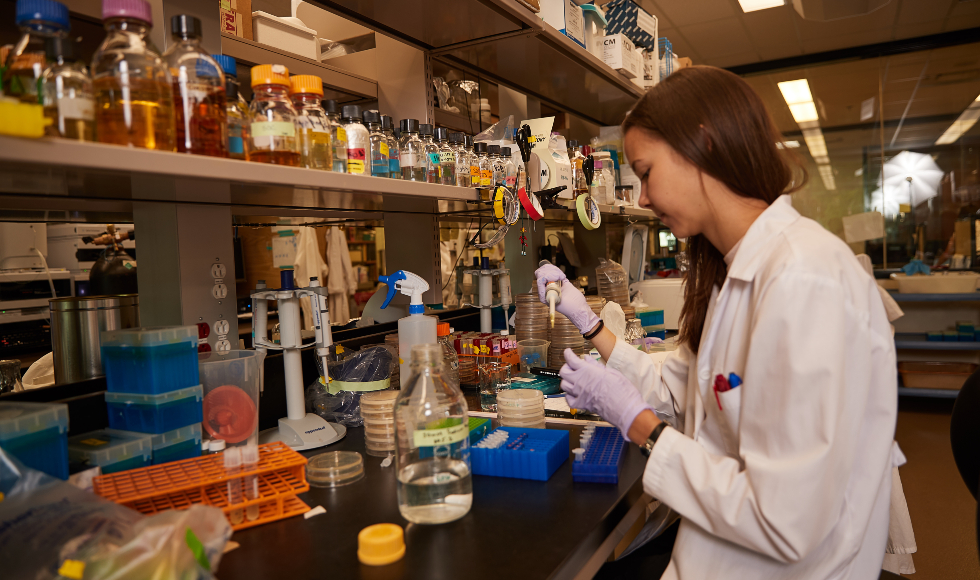World Antibiotic Awareness Week takes a hard look at antibiotic resistance

A student works in professor Gerry Wright's lab / Photo by Kevin Patrick Robbins
BY Sara Laux
November 12, 2018
“Change can’t wait. Our time with antibiotics is running out.”
That’s the tagline developed by the World Health Organization for this year’s World Antibiotic Awareness Week, an annual initiative that aims to increase global awareness of the dangers of antibiotic/antimicrobial resistance (AMR).
“Antibiotics are foundational medicines for everything that we do, taking care of infections like pneumonia or blood infections, but also allowing us to do cancer chemotherapy, hip replacements, surgery and caesarean sections,” explains Gerry Wright, the director of the Michael G. DeGroote Institute for Infectious Disease Research and a professor in McMaster’s department of biochemistry and biomedical sciences. “What’s happened is that bacteria have become completely resistant to many, if not all, antibiotics that we have available, and there are no new drugs coming forward.”
While AMR occurs naturally over time, misuse and over-use of antibiotics has accelerated the process, leading to a global problem where available antibiotics are no longer able to fight infections – meaning that illnesses that are currently treatable, such a strep throat or pneumonia, may become deadly to more and more people.
And while any type of microbe, like bacteria, parasites, viruses and fungi, can become resistant to treatment by drugs, antibiotic resistance is rising to dangerously high levels across the globe.
The IIDR, which is a world-leading centre of antimicrobial-resistance and infectious-disease research, is working on new and creative solutions to the problem, including developing ways to speed up the process of discovering new antibiotics, tracking and characterizing resistance before it emerges in clinical settings, and advancing the next generation of antimicrobial strategies to diagnose, treat and prevent drug-resistant infections.
“For the most part, antibiotic resistance isn’t on everyone’s radar,” says Wright. “That’s why it’s so important that we tackle this now by thinking ahead – there are acute problems now, but in the future, it’s going to be much, much worse.”
To mark World Antibiotic Awareness Week, Brighter World will highlight the work of some of the IIDR’s researchers each day.


